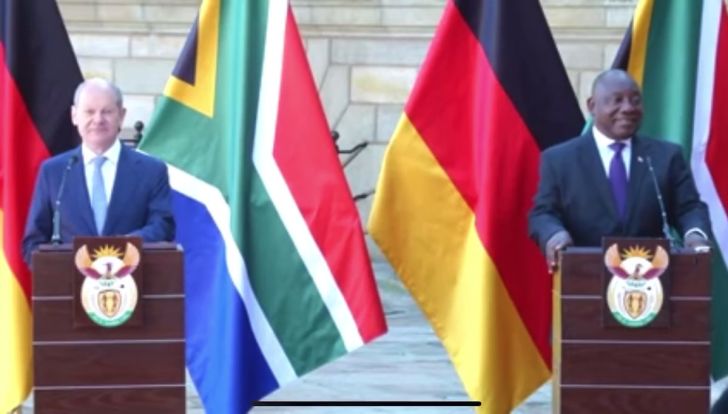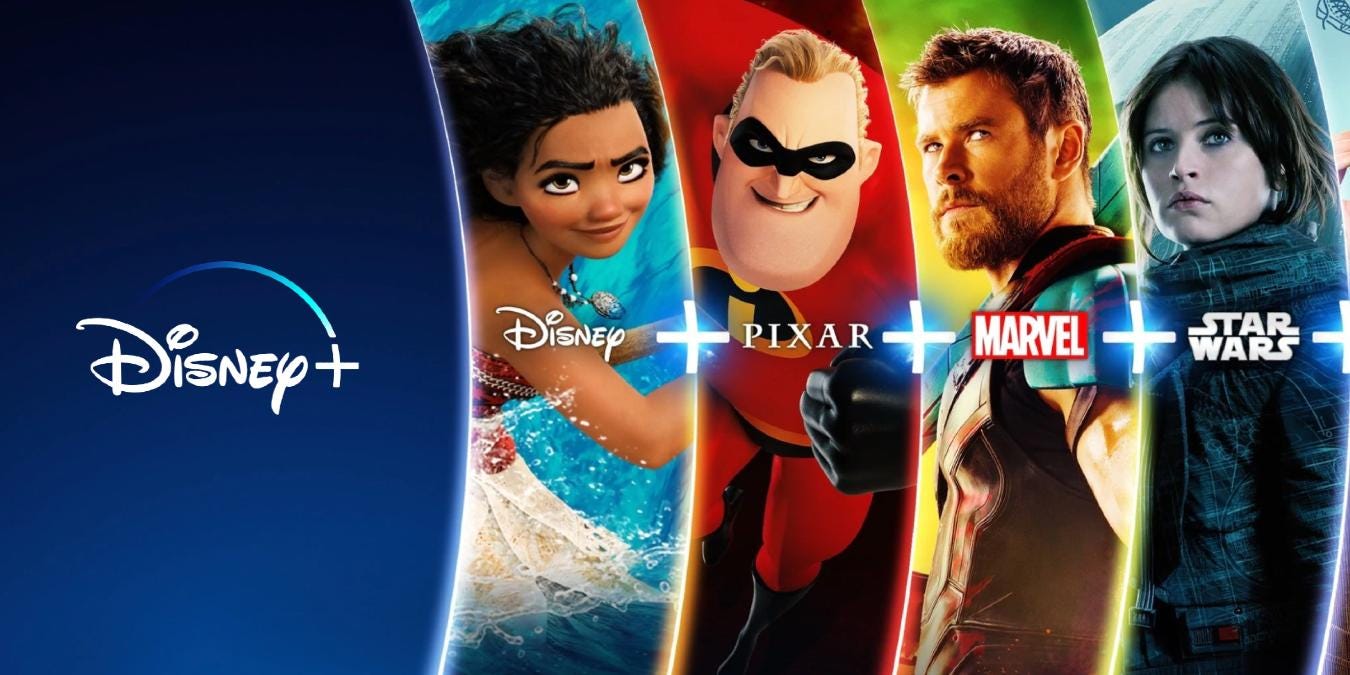South Africa's neutral stance on Russia-Ukraine, HK prepares for a new leader and Disney's streaming success
May 2022
Hello and welcome! 👋
I was reminded of Deep Dive’s origin story when a friend shared a brilliant post by Mark Manson called “The Life Cycle of Outrage”. The piece explains how journalists, bloggers and politicians scramble to publish hot takes on a ‘Significant Event’ to create a series of ‘Viral Waves’. Eventually their attention moves on to the next event but the public is left to digest confusing narratives.
I must admit this media frenzy contributed to my fatigue with 24/7 news, particularly in my role as a live TV producer and reporter. Often there isn’t appetite, time and/or budget for nuanced analysis and meaningful debate.
So, I began writing the newsletter in 2020 to shed light on interesting developments beyond the main rotating headlines. Of course, thousands of words are required to truly explore a topic, but I hope you find parts of Deep Dive informative and illuminating.
NON-ALIGNED SOUTH AFRICA
Germany’s Olaf Scholz completed his first Africa tour as chancellor with a visit to Pretoria on 24 May. Scholz and Cyril Ramaphosa, the South African president, discussed numerous issues but a key topic was the conflict between Russia and Ukraine.
To recap: South Africa, along with China and India, abstained from voting on a United Nations resolution condemning Russia’s invasion of Ukraine. So far, the South African government has been careful to stay “neutral”; instead it calls for peaceful dialogue and negotiations. “The benefit in all this is that we can talk to both sides,” Ramaphosa said in an interview with Bloomberg.

However, during a press conference with the German chancellor, Ramaphosa described Russia and Ukraine as “two belligerent parties”. He also raised concerns about the negative impact of sanctions on bystander countries.
Historical context is necessary to understand South Africa’s stance. A crucial factor is the Soviet Union’s support of anti-apartheid activists and the ANC party. The Kremlin provided military training and financial aid at a time when Western leaders, such as Ronald Reagan and Margaret Thatcher, were dismissive of Nelson Mandela and the liberation movement.
Secondly, South Africa has been strengthening ties with Russia and China as a BRICS member. Former president Jacob Zuma was especially close to Vladimir Putin.
Additionally, political analysts think countries like South Africa are making strategic foreign policy calculations to avoid being sucked into a proxy fight between old Cold War foes. Put simply, what is there to gain from allying with Washington and Brussels?
HONG KONG’S ONE-MAN RACE
The end of this month marks one year since I left Hong Kong, a place I hold very near and dear to my heart.
Unfortunately, the city seems stuck in a Covid-19 stasis. Outdoor mask mandates, hotel quarantine for overseas arrivals and various restrictions are still enforced. Yet HK remains a land of contradictions - Art Basel went ahead, boat party (“junk”) season is in full swing, and restaurants and bars are busy.
The question is, will the appointment of John Lee as chief executive trigger a drastic shift? The ex-security minister is due to take the reins from Carrie Lam on 1 July, which coincides with the 25th anniversary of HK’s transfer from Britain to Beijing.
Most are sceptical. Lee’s rise to the top position is eyebrow-raising, even by CCP standards. He was the sole candidate running for “election”. On 8 May, 97% of the government-vetted committee selected him to lead the territory. Normally there is at least the pretence of a competitive race.
Chinese state media praised the idea of “patriots administering Hong Kong” while simultaneously bashing the West for criticising the “law-abiding, open and fair election”.
Lee’s background as a police officer and advocate of the National Security Law suggests Beijing will push through with further security measures. Just two weeks ago, Cardinal Joseph Zen, a senior Catholic clergyman, was arrested for his association with a pro-democracy organisation.
MICKEY’S MILLIONS
Since the Walt Disney empire encompasses entertainment, lifestyle and leisure, its financial results offer fascinating insights into modern consumer habits.
While the current outlook could do with more sunshine and rainbows, the company’s revenue for the January to March quarter did jump 23% from the same period in 2021. Executives are hopeful this means the House of Mouse is on the path to recovery following the global health crisis.
One figure that gives comfort is theme park earnings. Disney parks and resorts in the US, Paris and Tokyo saw huge increases in sales as visitors returned in droves. Despite higher ticket and hotel prices, guests were happy to splurge to see Mickey, Minnie & co. Disney is optimistic the income boost will offset losses in its Chinese markets, where Covid-related closures continue to disrupt operations. Hong Kong Disneyland was only open for three days in the quarter, and the Shanghai property shut its doors indefinitely on 21 March.
The other figure that piqued investor interest is streaming subscriptions. After Netflix’s dismal update (headline: 200,000 users dropped out), Wall Street was anxious to learn about Disney’s fortunes. Luckily for CEO Bob Chapek, Disney+ grew its subscriber base, beating forecasts.
Some 205 million people around the world are now paying for Disney-owned platforms, which includes content from Pixar, Marvel, ESPN, Hulu, 20th Century Fox and National Geographic. In fact, Disney’s bosses wrote a cheque for US$1 billion to cover early termination fees to rival streaming services that bought its TV shows and films. Disney wants to play those exclusively on its digital channels.
If recent box office stats are anything to go by, the House of Mouse’s intellectual property is in demand. Doctor Strange in the Multiverse of Madness has already raked in US$688 million, and Hollywood watchers are betting big on Lightyear and Thor: Love and Thunder this summer.
Thanks for reading! Take care and stay curious, Sara x




